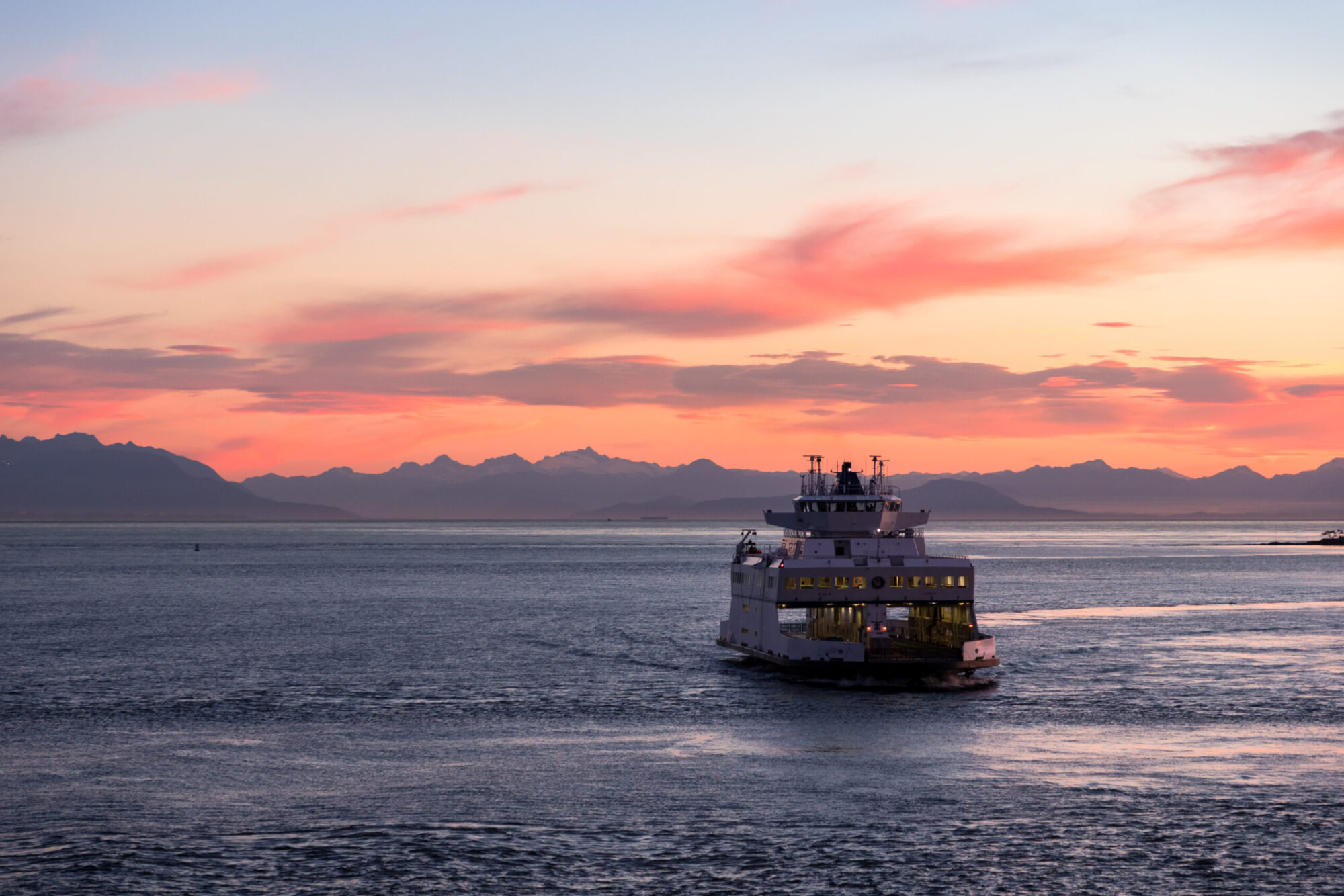
Oceans North Applauds Canada Infrastructure Bank’s Investment in New Zero-Emission Ferries in BC
May 24, 2024
VANCOUVER—Oceans North congratulates the Canada Infrastructure Bank (CIB) and BC Ferries on their landmark decision to purchase four new zero-emission ferries. This $75-million investment represents a monumental leap towards sustainable maritime transportation, reflecting a strong commitment to combating climate change and preserving our oceans.
The CIB’s loan will not only fund the new ferries but also the installation of necessary charging infrastructure, with the projects slated for completion by fiscal year 2027. It follows Oceans North’s advocacy for the full decarbonization of Canada’s domestic ferry fleet by 2035.
“This project represents a strong alignment of vision between BC Ferries, the Province of British Columbia, and the Government of Canada, showcasing leadership across governments and industry.”
– Brent Dancey, Director of Marine Climate Action at Oceans North.
“Ultimately, Canada has the opportunity to show even greater leadership by mandating the electrification of all ferries by 2035 and supporting that effort with further financial tools,” said Brent Dancey, Director of Marine Climate Action at Oceans North.
Electrifying harbour craft and near-shore vessels is essential to mitigating the impacts of climate change, and ferries—with their short, repeatable, near-shore runs—are an excellent place to start. BC Ferries operates one of the largest passenger ferry services in the world, and this investment will help de-risk future deployments of zero-emission technologies.
According to federal data, Canadian passenger vessels produce nearly 500,000 tonnes of greenhouse gases annually, which is equivalent to the emissions of 120,000 cars on the road. The introduction of these zero-emission ferries alone is projected to cut BC Ferries’ greenhouse gas emissions by approximately 9,000 tonnes each year.
While celebrating this decision, Oceans North urges BC Ferries to remain steadfast in their commitment to sustainability by avoiding the replacement of larger ferry vessels with those fuelled by liquefied natural gas (LNG), which emit significant volumes of greenhouse gases and will hinder Canada’s long-term climate goals. The decarbonization of the ferry fleet is a pivotal move toward reducing maritime emissions and protecting our oceans, and it is crucial that this momentum is not compromised by transitioning to LNG.
“Moving forward, we need to avoid locking-in fossil fuel infrastructure at all costs and focus on true zero-emission solutions,” added Dancey. “This is the only way we can avoid the worst impacts of climate change, which is essential for protecting our oceans for future generations.”
Oceans North looks forward to seeing the positive impacts of these zero-emission vessels and continues to support initiatives that advance marine electrification in coastal communities.
Note: Brent Dancey is available for interviews upon request.
For more information, please contact:
Matt Dykstra
Senior Climate Campaigner
Oceans North
mdykstra@oceansnorth.ca
